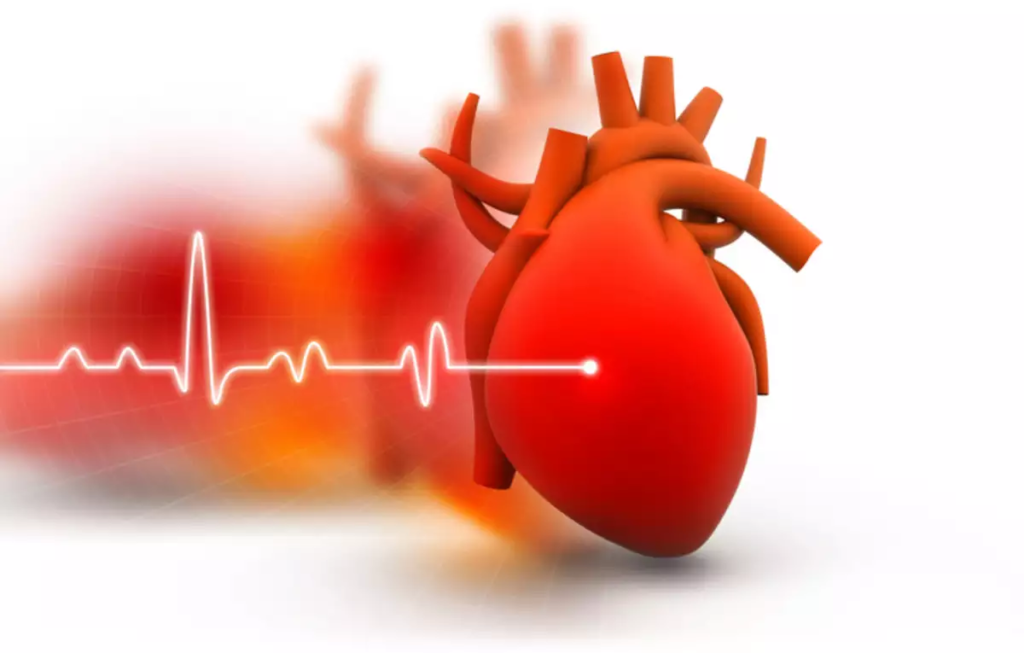
Introduction to Heart Rate Variability (HRV)
Heart Rate Variability (HRV) is more than just a number; it’s a window into your body’s health and resilience. Picture your heart as a finely tuned instrument, responding to the rhythms of life. A higher HRV indicates that your nervous system can adapt and recover effectively, while lower levels may signal chronic stress or an imbalance in your overall well-being.
As our lives grow busier and more complex, understanding how to enhance HRV becomes essential. It not only plays a crucial role in cardiovascular health but also influences mental clarity, emotional regulation, and stress management. By making simple lifestyle changes, you can improve this vital metric and unlock better physical fitness along with enhanced emotional stability.
Ready to dive into the world of heart rate variability? Let’s explore how small adjustments to daily habits can lead to profound improvements in your health.
The Importance of HRV and its Impact on Health
Heart Rate Variability (HRV) is a powerful indicator of your body’s ability to adapt. It reflects the balance between your sympathetic and parasympathetic nervous systems. A higher HRV typically signifies better cardiovascular health, improved emotional regulation, and a robust stress response.
Low HRV can be a warning sign of chronic stress or underlying health issues. When the body struggles to recover from daily challenges, it may lead to fatigue and anxiety. Understanding your HRV provides insight into how well you manage stressors in life.
By monitoring this key metric, individuals can tailor their wellness routines for optimal performance. Embracing practices that boost HRV can enhance overall well-being, fostering resilience against both physical and mental health challenges. Your heart’s rhythm communicates much more than just beats; it’s a window into your holistic health journey.
Factors that Affect HRV

Heart Rate Variability (HRV) is influenced by a myriad of factors, both physiological and environmental. One significant determinant is stress. Chronic stress can lead to lower HRV, indicating a less adaptive nervous system.
Physical activity also plays a critical role. Regular aerobic exercise enhances cardiovascular health and boosts vagal tone, which positively impacts HRV. Conversely, sedentary behavior may decrease it.
Sleep quality cannot be overlooked. Restful sleep allows your body to recover and regulate autonomic functions effectively. Poor sleep habits disrupt this process.
Nutrition serves as another key factor in HRV levels. A balanced diet rich in omega-3 fatty acids, antioxidants, and proper hydration supports overall heart health.
Emotional regulation affects how we respond to life’s challenges. Practicing mindfulness or meditation can enhance our ability to manage emotions effectively, contributing positively to HRV stability over time.
Lifestyle Changes to Improve HRV
Improving heart rate variability (HRV) can significantly enhance your overall health and well-being. Simple lifestyle changes can have a profound impact.
Regular physical activity is foundational for HRV improvement. Aerobic exercises like walking, running, or cycling boost cardiovascular fitness and promote vagal tone, enhancing nervous system regulation.
Stress management techniques are essential too. Mindfulness practices such as meditation and deep breathing help alleviate chronic stress while fostering emotional regulation. Incorporating relaxation techniques into your daily routine creates a calming environment for both body and mind.
Sleep hygiene plays a crucial role as well. Prioritizing restful sleep improves recovery strategies and enhances sleep quality, which directly impacts HRV levels. Aim to establish a consistent sleep schedule that provides restorative rest each night.
Nutrition also matters in this equation. A balanced diet rich in whole foods supports cardiovascular health while reducing inflammation—key components for optimizing HRV over time.
A. Exercise
Exercise is a powerful tool for enhancing heart rate variability (HRV). Engaging in regular physical activity improves cardiovascular health and strengthens the vagal tone, which plays a crucial role in regulating heart function.
Aerobic exercises like running, swimming, or cycling can be particularly beneficial. These activities not only elevate your heart rate but also promote better oxygen delivery throughout the body. This increased efficiency helps improve overall HRV.
Incorporating strength training into your routine supports muscle health and metabolic function. Even gentle practices such as yoga or tai chi can enhance relaxation responses while fostering a deeper mind-body connection.
Aim for consistency rather than intensity. Short sessions spread over the week are more effective than occasional long workouts. Listen to your body; finding enjoyment in exercise encourages persistence and builds healthier habits over time.
B. Stress Management
Stress management is crucial for enhancing heart rate variability (HRV). Chronic stress can lead to a decrease in vagal tone, negatively impacting your cardiovascular health.
Incorporating relaxation techniques into your daily routine can significantly improve HRV. Mindfulness practices like meditation and deep breathing exercises help calm the nervous system. Just a few minutes of focused breathing can shift your body from fight-or-flight mode to a state of relaxation.
Physical activity also plays an essential role in stress reduction. Engaging in aerobic exercise releases endorphins, which naturally elevate mood and promote emotional regulation.
Additionally, consider reducing caffeine intake. High levels of caffeine may increase anxiety and disrupt sleep quality, further affecting HRV. Staying hydrated is another simple yet effective strategy; dehydration can contribute to higher stress levels.
Remember that self-care practices tailored to your needs are vital for maintaining balance amid life’s challenges.
C. Sleep Hygiene
Sleep hygiene plays a vital role in improving heart rate variability (HRV). Quality sleep allows your body to recover and regulate the nervous system effectively. When you prioritize restful sleep, you enhance vagal tone, positively impacting cardiovascular health.
Creating a soothing bedtime routine can greatly influence sleep quality. Dim your lights an hour before bed and limit screen time. Instead, indulge in relaxation techniques like deep breathing or meditation to ease into slumber.
Your sleeping environment matters too. Keep the room cool, dark, and quiet for optimal conditions. Investing in comfortable bedding can also make a significant difference.
Be mindful of what you consume throughout the day. Reducing caffeine intake—especially later in the afternoon—can promote better sleep patterns. Staying hydrated is important as well; however, avoid drinking large amounts right before bedtime to minimize nighttime awakenings.
A consistent schedule helps train your body’s internal clock for improved recovery strategies over time.
D. Nutrition
Nutrition plays a crucial role in improving heart rate variability (HRV). A healthy diet can be your foundation for better cardiovascular health and overall well-being. Focus on nutrient-dense foods rich in antioxidants, vitamins, and minerals.
Incorporating omega-3 fatty acids found in fish or flaxseeds can enhance vagal tone. These healthy fats help reduce inflammation and support nervous system regulation, both essential for optimal HRV.
Don’t forget about hydration. Drinking enough water supports all bodily functions, including the regulation of your heart rate. Aim to balance electrolyte levels through natural sources like fruits and vegetables.
Reducing caffeine intake is another important aspect. High caffeine consumption can lead to increased stress responses, negatively affecting HRV. Instead, consider herbal teas or other calming beverages that promote relaxation.
A balanced lifestyle thrives on mindful eating habits—cultivating a positive relationship with food enhances emotional regulation and contributes significantly to HRV improvement.
Technology and HRV Tracking
Technology has revolutionized the way we monitor our heart rate variability (HRV). Wearable devices like smartwatches and fitness trackers now include HRV tracking as a standard feature. This allows you to measure your body’s response to stress, exercise, and recovery in real-time.
Many of these devices use photoplethysmography sensors to assess blood flow changes. They provide insights that can help you understand patterns over time. With this data, users can identify what lifestyle changes positively affect their HRV.
Apps focused on mindfulness and relaxation also offer valuable metrics related to HRV. By integrating breathing exercises or meditation sessions into daily routines, individuals can see immediate effects on their numbers.
This blend of technology with wellness practices creates a powerful tool for those looking to enhance their cardiovascular health and overall well-being through informed decisions. Tracking becomes an engaging part of self-care journeys rather than just numbers on a screen.
Seeking Professional Help to Improve HRV
If you’re struggling to enhance your heart rate variability (HRV) despite making lifestyle changes, seeking professional help can be a game-changer. Health practitioners like cardiologists and mental health specialists understand the complex factors affecting HRV.
Therapists trained in stress management techniques can guide you through practices such as mindfulness and meditation. These methods not only promote relaxation but also help regulate emotional responses.
A registered dietitian can provide insights into nutrition for HRV improvement. They’ll work with you to develop a healthy diet tailored to your specific needs.
Additionally, fitness professionals specializing in aerobic exercise offer customized workout plans aimed at boosting cardiovascular health while enhancing HRV.
Don’t hesitate to reach out for guidance; expert assistance can set you on the path toward better heart health and overall well-being.
Conclusion
Improving heart rate variability is a journey that encompasses various aspects of your lifestyle. By embracing changes in exercise, stress management, sleep hygiene, and nutrition, you can significantly enhance your HRV. Engaging in regular physical activity like aerobic exercises not only supports cardiovascular health but also fosters a stronger mind-body connection.
Stress management techniques such as meditation and mindfulness play crucial roles in enhancing vagal tone and emotional regulation. Practices like deep breathing and yoga for HRV create space for relaxation and recovery strategies essential for reducing chronic stress. Prioritizing quality sleep through good sleep hygiene practices ensures restful nights that contribute to overall wellness.
Nutrition is another pillar; adopting a healthy diet rich in nutrients can influence HRV positively while ensuring proper hydration levels are maintained throughout the day. These lifestyle changes align with fostering healthy habits that promote long-term heart health.
Additionally, utilizing technology to track your HRV allows you to monitor progress effectively, giving insights into how daily choices impact this vital metric of well-being. If needed, seeking professional help can provide personalized guidance tailored to improve your specific circumstances.
Creating a balanced lifestyle filled with self-care practices will not only elevate your heart rate variability but also enrich other areas of life—leading ultimately to improved mental health and longevity. Embrace these changes thoughtfully; every small step counts toward cultivating resilience within yourself today.
Stay tuned for more updates only on QAWire

